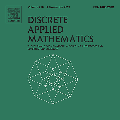Automation now steers building HVAC, distribution grids, and traffic signals, yet residents rarely have authority to pause or redirect these systems when they harm inclusivity, safety, or accessibility. We formalize a Right-to-Override (R2O) - defining override authorities, evidentiary thresholds, and domain-validated safe fallback states - and introduce a Deliberative Audit Method (DAM) with playbooks for pre-deployment walkthroughs, shadow-mode trials, and post-incident review. We instantiate R2O/DAM in simulations of smart-grid load shedding, building HVAC under occupancy uncertainty, and multi-agent traffic signals. R2O reduces distributional harm with limited efficiency loss: load-shedding disparity in unserved energy drops from 5.61x to 0.69x with constant curtailment; an override eliminates two discomfort-hours for seniors at an energy cost of 77 kWh; and median pedestrian wait falls from 90.4 s to 55.9 s with a 6.0 s increase in mean vehicle delay. We also contribute a policy standard, audit worksheets, and a ModelOps integration pattern to make urban automation contestable and reviewable.
翻译:暂无翻译




